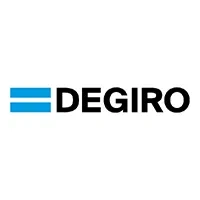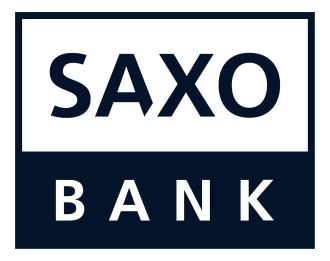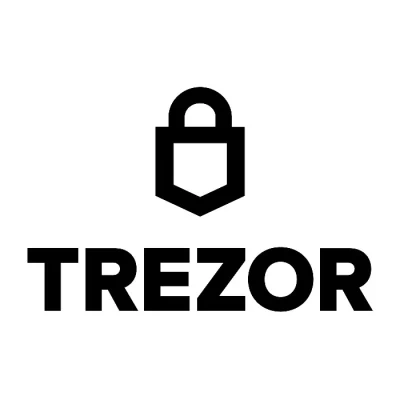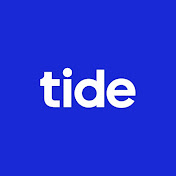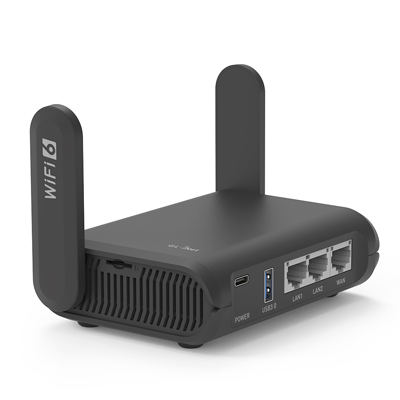Investor, Business & Self-Sovereignty Tools for Europeans
This is a “mixed bag” of the tools, software, and investment accounts we recommend for personal and business use. The aim of this toolbox is for the reader to be inspired to create their own self-governing digital and real-world set-up that does not sacrifice too much convenience in everyday usage.
In a way, the objective of this toolbox is also to break with the law of the instrument. Rather than relying on habitual choices, we believe in exploring alternatives in the quest for augmenting personal autonomy. Balancing independency from third parties, security and convenience all at once is difficult, but hopefully the following suggestions will provide some sort of starting point for your journey. Read, pick, or discard these tools however you see fit.
Online brokers
Interactive Brokers and DEGIRO are the two brokers we recommended for Europe-based investors. While most investors are attracted to the low costs with these two choices, we also recommend them because their business models are based on commissions rather than payment-for-order flow, contracts for differences, or venture capital, which represent significant revenue streams for many newer brokerages.
Between the two, Interactive Brokers has the longest history, the most robust company financials, access to all the big equities and bond markets, and it is the only brokerage that is truly pan-European in the sense that it is available almost everywhere across the continent. Share lending is also not mandatory with Interactive Brokers, while this is the the case with DEGIRO.
Our secondary choices are Saxo Bank and Swissquote, both of which are bank-regulated stable companies with long histories and not reliant on fragile revenue streams. While both are strong contenders, unfortunately their fee schedules are uncompetitive compared to Interactive Brokers and DEGIRO.
Bitcoin wallets
A hardware wallet (a small USB-like device) is the only type of cryptocurrency wallet that securely isolates your private cryptographic keys—the string of numbers and letters that grants access to your digital funds—from the outside world. It does so by keeping those keys in an environment that is not connected to the internet.
The benefit of a hardware over a software wallet is that it lets you to sign a transaction on the blockchain without your private keys ever leaving the device. This means you can send and receive payments while remaining entirely in control of your funds. With the rise of the KYC theatre and haphazard account freezes, the ability to bypass intermediaries is becoming a scarce commodity is worth appreciating before it disappears.
Cryptocurrency wallets do not physically store your coins. Your wallet only stores the the private keys needed to unlock your public keys (your Bitcoin address) and spend your coins. Therefore, you should permanently isolate your private keys from devices connected to the internet. As for your coins themselves: they are not stored in any folder or particular machine. Instead, they live on the Bitcoin blockchain.
We recommend Ledger and Trezor equally because these companies have long-standing “freedom-by-design” commitment to technology. When buying a hardware wallet, consider having it delivered to a PO Box rather than your home address and use a secondary email address during checkout. This way, your personal information is better protected.
Cryptocurrency exchanges
Centralised venues
Peer-to-peer trading is the only way to truly maintain full control of your assets in the cryptocurrency space. It can be cumbersome, however, and even too much work for some. Using a centralised exchange represents a practical, non-anonymous alternative that many people prefer. Strongly consider withdrawing your funds, in whatever quantity that makes sense, to cold storage after every purchase.
The reason we recommend Kraken is because the company and its CEO walk a fine line between standing up to government overreach while still providing a service that focuses on security, ease of use, inexpensive trading. Plus, it has multiple fiat channels for European customers, which just makes it very practical.
A newer, non-KYC alternative is Swiss-based Relai. Their fees are steeper, from 0.5% to 2.5%, but they allow you to buy bitcoin with card and bank transfer without uploading any identification documents. The last checked limits were 1,000 EUR per day (100,000 EUR per year)—plenty for most people. Relai also lets you buy directly to an external wallet address.
Peer-to-peer exchanges
Bitcoin is a “purely peer-to-peer version of electronic cash would allow online payments to be sent directly from one party to another without going through a financial institution.” This was Satoshi’s original vision as laid out the Bitcoin whitepaper. You can find buyers and sellers from around the world on the following peer-to-peer platforms and trade bitcoin for fiat currencies or other cryptocurrencies.
But caveat emptor, there are unfortunately many dishonest persons on these platforms.
Online banks
Digital/online/challenger banks can be pragmatic additions to a regular bank account but should not be a replacement for one. They are often viewed as more flexible because of their low/no fees, multi-currency functionality, and the ease of setting up and using them.
Despite the benefits online banks bring, we recommend keeping funds with these companies at a minimum and using them for conduit purposes only (like travelling or converting currencies); they are prone to randomly freeze accounts, offer no human support, and only a few are covered by the deposit insurance program.
U.S. banks
A U.S. bank account is insured for up to $250,000 per depositor, which is more than twice the amount offered by European banks. If you are able to open a U.S. bank account, you can secure your money with one of the best-protected banking systems in the world. Travelling to the U.S. and visiting a bank branch physically is usually the only way to open an account as a non-U.S. citizen or resident. The U.S. is also the only first-world Western country that does not participate in the Common Reporting Standard.
There are a few U.S. online banks that accept non-residents without a U.S. SSN. We’re currently researching and testing these to see whether they are worth listing here. Regardless, having a U.S.-based bank account as a non-U.S. citizen is an attractive proposition for those who seek limit the amount of information shared with other parties but also those who believe in the strength of the U.S. dollar.
Anonymous payment cards
Virtual debit cards and gift cards can add a proxy layer of privacy between your personal information, retailers, and prying third parties who are interested in your transactions. These cards can be topped-up anonymously with cryptocurrency via your self-custodial wallet. Some examples of gift cards you can buy with cryptocurrency include Amazon and Airbnb. The prepaid cards work anywhere regular debit cards are accepted.
Corporate and personal tax structure
These examples are not meant as financial or legal advice but only as an indication of what is possible in terms of setting up a company structure that is effective, flexible, and grants limited liability to its owners. In most cases, if you are a majority owner of a company that is incorporated in a different country than where you manage it from and live, your home country’s tax authority can lay claim to the company’s profits. Make sure to get proper advice before taking any action. Don’t put your blinders on and fly solo.
U.S. LLC (New Mexico or Wyoming)
The biggest advantage of doing business through a U.S. LLC as a non-U.S. resident is that an LLC is taxed as a pass-through (disregarded) entity. This means the company pays no U.S. corporate taxes, but the LLC members (owners) are taxed at the personal level instead. The second benefit is the prestige that comes with trading through a company based in the U.S. It just looks good. The third is that LLCs grant liability protection to the members like a regular limited company.
Wyoming and New Mexico are two popular choices among foreigners for creating an LLC because these states have very business-friendly climates. N.M. and W.Y. LLCs are easy to set up, cheap to maintain, and easy to secure banking for. Both states also provide anonymity because there is no public record of the owners as long as you use a registered agent for filing documents. The choice mostly boils down to picking N.M. for its low fees and privacy or W.Y. for asset protection. Those looking for investors would probably want to consider Delaware, as it’s the most popular state for U.S. companies.
Cyprus limited and non-dom
Cyprus’ nom-domicile (“non-dom”) program can be combined with a Cyprus limited company to create a low combined effective tax rate of around 15%. This personal-business structure is extremely simple and currently one of the best available in Europe.
The main reason why it’s so attractive is that foreigners who move their personal tax residency to Cyprus will automatically become exempt from Special Defence Contribution (“SDC”) tax for 17 years. By being exempt from paying SDC, non-dom individuals can live nearly tax-free in Cyprus from dividends and interest from sources both inside and outside Cyprus. For example, dividends issued by your company in Cyprus, dividends from stock market investments, or interest payments from rental properties. The corporate tax rate is only 12.5%.
Estonian OÜ
An osaühing, or OÜ for short, is the Estonian equivalent of a limited liability company. It’s a popular choice for people with well-structured personal tax affairs, perpetual travellers, online business owners, and those who want easy access to the E.U. market. An OÜ is incredibly versatile as it can be set up and run entirely remotely.
Estonian OÜ’s are popular because they can be used as piggy banks for their owners. OÜ’s do not pay tax on profits as long as the money is not distributed (retained in the company). This allows owners to compound their earnings through investments and postpone their personal tax bills until they reside somewhere well-suited for withdrawing dividends.
U.K. limited
The U.K. limited company, or Ltd, is one of Europe’s most popular legal structures. It echoes the same respect as a U.S. LLC and can be run completely remotely, from outside or within the U.K. A U.K. limited company is an incredibly versatile corporate vehicle: it’s quick to set up, administrate, get affordable accounting and tax services for, and flexible in terms of appointing directors and shareholders. The minimum share capital (the amount of money owners have put into the company) can be any amount above £0 (typically £1 or £1,000).
A UK Ltd can be registered online in less than 10 minutes. You can do it yourself with the U.K.’s Companies House for a filing fee of £12. Or you can use the services of a professional company formation agent to help with the process and ensure everything is done properly. The latter is necessary if you don’t have access to a UK address, and it also gives you more privacy, as you can use the agent’s name and London-based address on public records and company documents instead of your personal information. Lastly, a formation agent, like 1st Formations, can help you with different compliance requirements, including the annual confirmation statements and VAT registration.
VPNs
The next best to using Tor for anonymity and sovereignty online is a VPN. A VPN disguises your internet connection and routes it through a server in another country, effectively masking your identity and traffic from data brokers, advertisers, and most importantly, the mass surveillance programs conducted by European governments with the aid of your ISP.
VPN routers
Consider combining a VPN subscription with a VPN router for optimised security and geomasking. A VPN router can repeat WiFi and mobile tethering signals and route all traffic that goes through it via the VPN client software installed on it. If you’re a digital nomad or frequently travel for work and don’t want to connect to your dodgy hotel’s WiFi, it’s the perfect solution. Plus, it doesn’t drain your smartphone’s battery.
We recommend the GL.iNet routers. Their models work out of the box because they come with OpenWrt firmware installed and support OpenVPN and WireGuard encryption. Plus, they are easy to set up with nearly all VPN subscriptions. The newer versions also come with customisable adblocking through AdGuard’s DNS services.
If you have a technical mindset, the Raspberry Pi (or another small-sized Linux computer) is a more flexible alternative to a pre-configured VPN travel router. With the Raspberry Pi, you’ll need to “build” your own router with the help of some firm- and software, including OpenWrt. This solution obviously requires more tinkering.
Web browsers
Although Chrome is very secure from a technical standpoint, it’s a privacy nightmare. Google collects and stores an exorbitant amount of data from Chrome on U.S.-based servers to build very a detailed profile of you. Ultimately, Google makes money from advertising. Firefox and Brave are strong privacy-centric alternatives with excellent tracking-protection.
The best email providers for privacy are based in Europe. These services have OpenPGP encryption, strong security, allow custom domains, and have both free and premium plans that can be paid for anonymously. We recommend Proton Mail because the Proton AG company operates under Swiss privacy laws outside the reach of the EU and U.S. The Proton suite of services also includes a free VPN, free file storage drive, and calendar.
Web and app hosting
We recommend choosing a host with a Europe-based data centre. DigitalOcean or Vultr are recommended choices if you don’t mind paying a few euros per month in return for convenience and more plug-and-play solutions. Finally, shared web hosting services like NameHero and Cloudways are good if you need something very cheap and want to avoid the hassle of server administration and security.
If you are technically savvy, you can use Oracle’s Cloud Free Tier and get very generous free VPS hosting for your site, project, or app that is better than many of the paid services. As of writing, you can get four free instances with Oracle. We don’t recommend the free tiers of Amazon’s AWS or Microsoft’s Azure for free hosting, as you can risk an enormous bill if you accidentally go above your monthly limit.
Energy sovereignty
Over the past few years, it has become evident how easily centralised grids can be disrupted by rogue states. From a saver’s point of view, the more immediate everyday financial impact that shouldn’t be overlooked is the never-ending pile-up of new taxes together with the sharp increase in base costs for electricity and heating. Having decentralised sources of energy for your home is more important than ever.
While energy self-sufficiency does come with high initial set-up costs, it often pays for itself over the long run. Many countries have generous tax deduction schemes available for renewable energy installations. These incentives are often of significant size. Obviously, reducing your reliance on the grid is easier done in southern Europe than in the northern parts of the continent.
For power, solar panels and a battery pack are the obvious choice as the technology is rapidly improving and because the rigs can be easily mounted on roofs, balconies, and other surfaces. In northern Europe, relying on solar alone can be a challenge, however. For heating, an air source or geothermal heat pump is often a good choice.
Last updated: February 23, 2023


